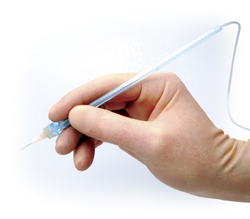
Summer is officially here and whether you plan on holidaying at home in the UK or jetting off to somewhere a bit further we wanted to remind you of all the extra benefits you receive if your one of the 902 members of our dental plan – Smile Plan.
Most of our new patients join our membership plan to take advantage of the 15% discount on dental treatment and ensure their long-term dental health care. But more and more of our regular patients are joining Smile Plan because it offers a simple, flexible way to pay for your dental care. It costs just £12.99 per month and covers your regular 6 monthly dental health checks, hygiene appointments and if you do require any dental treatment we give you a nice little discount of 15% on the treatment.
Whilst benefiting from the regular care and treatments of Smile Plan it’s easy to forget some of the additional perks. A toothache, broken filling or facial swelling always seems to appear at the most inconvenient times, such as on holiday. But we have good news for you if you’re a member of the dental plan.
Covered in your membership is emergency callout cover, it can be provided by any dentist anywhere in the world that agrees to treat you, subject to the terms and conditions of the Smile Plan policy. You simply pay the emergency callout charge to the dentist concerned and collect a receipted invoice. This can then be processed upon your return for reimbursement from the insurers and you will be refunded the callout fee, minus the excess, up to the policy limit. This cover is designed to give you immediate pain relief treatment only; on your return book an appointment with us at the dental practice in normal hours to review and carry out any permanent treatment that may be required.
Our membership plan is specially designed with you, our patients in mind. Because at Smile Essential, we are totally committed to providing our patients with the best quality dental care in Leicester. We want to spend more time with our patients and provide prompt treatment using the latest techniques and best quality dentistry.
Here’s a summary of all the perks you can expect by becoming a member of Smile Plan –
• 6 monthly clinical examinations
• 6 monthly hygiene appointments with dentist/hygienist for: Scaling and polishing
• Assessment of gum health
• Fresh breath treatment
• Techniques to prevent gum disease
• Periodontal advice
• Oral cancer screening
• All necessary small X-rays
• 15% discount on most dental work you may require (including most cosmetic treatments)
• 15% discount on facial rejuvenation (not to be used in conjunction with other facial rejuvenation offers)
• 12 months guarantee on all restorative work (provided due care has been taken)
• Children of plan members will be treated under NHS arrangements
• Priority appointments
• Same day assessment of dental emergencies and dental pain
• Dispensing of most antibiotics in surgery – no need for a trip to chemist or to pay the prescription charge
• Emergency callout
• Dental insurance for treatment needed anywhere in the world as a result of accidental damage to your teeth
• Worldwide emergency callout
Download the membership brochure to find out more – Smile Essential Practice Membership Plan Brochure




 We advise patients to discourage their children from thumb sucking and review it at every 6 month dental appointment.
We advise patients to discourage their children from thumb sucking and review it at every 6 month dental appointment. 








